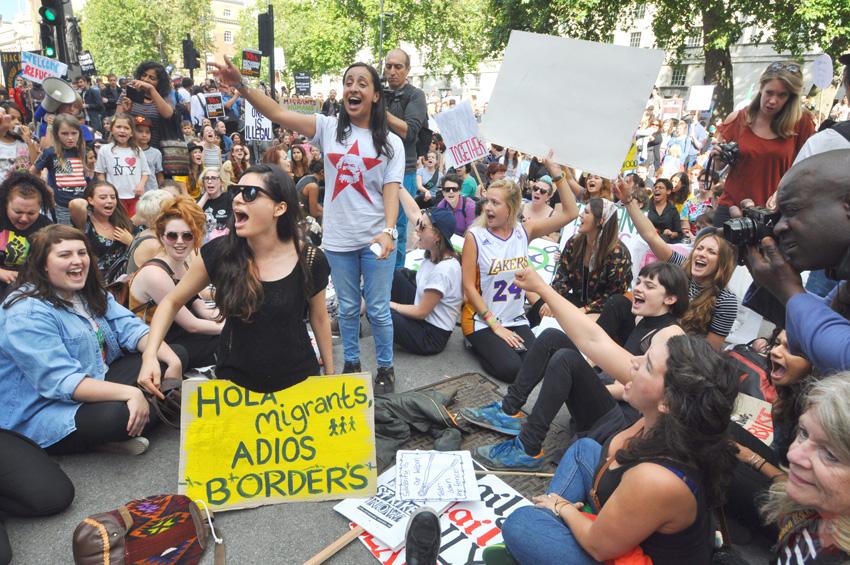THE EUROPEAN Union must be hauled before the International Criminal Court (ICC) and prosecuted ‘for crimes against humanity’ after letting ‘thousands of refugees drown in the Mediterranean Sea’, demands a 245-page legal submission.
The document calls for the EU to face charges of allegedly ‘intending to sacrifice the lives of migrants in distress at sea, with the sole objective of dissuading others in similar situation from seeking safe haven in Europe.’
The two main authors of the submission are Juan Branco, who formerly worked at the ICC as well as at France’s foreign affairs ministry, and Omer Shatz, a lawyer who teaches at Sciences Po university in Paris.
The submission states: ‘In order to stem migration flows from Libya at all costs … and in lieu of operating safe rescue and disembarkation as the law commands, the EU is orchestrating a policy of forced transfer to concentration camp-like detention facilities (in Libya) where atrocious crimes are committed.’
It is claimed that the evidence in the dossier establishes criminal liability within the jurisdiction of the ICC for ‘causing the death of thousands of human beings per year, the refoulement (forcible return) of tens of thousands of migrants attempting to flee Libya and the subsequent commission of murder, deportation, imprisonment, enslavement, torture, rape, persecution and other inhuman acts against them.’
This refers to when the EU moved away from the 2013 Mare Nostrum search and rescue policy, which the submssion says was ‘in many ways hugely successful, rescuing 150,810 migrants over a 364-day period.
‘EU officials sought to end the Mare Nostrum policy to allegedly reduce the number of crossings and deaths,’ the lawyers state.
‘However, these reasons should not be considered valid as the crossings were not reduced. And the death toll was 30-fold higher.’
The subsequent policy, Triton, only covered an ‘area up to 30 nautical miles from the Italian coastline of Lampedusa, leaving around 40 nautical miles of key distress area off the coast of Libya uncovered,’ the submission states. It also deployed fewer vessels.
The first mass drownings cited came on 22 January and 8th February 2015, which resulted in 365 deaths near the Libyan coast.
It is alleged that in one case, 29 of the deaths occurred from hypothermia during the 12-hour-long transport back to the Italian island of Lampedusa. During the ‘black week’ of 12 to 18 April 2015, the submission says, two successive shipwrecks led to the deaths of 1,200 refugees.
- A new exhibition which highlights refugees who have sought sanctuary in Wales and started a new life opens this week.
The virtual reality Freedom 360 Exhibition, with the Welsh National Opera, will run from 7th to 30 June at the Wales Millennium Centre in Cardiff.
Visitors will be able to experience the stories of five people who fled persecution in their own countries and found sanctuary in Wales.
One example is that of Joseph Gnagbo who escaped his Ivory Coast home in 2010 when it became the centre of a war zone. When he and fellow activists recorded a rap video which criticised the leaders of a military coup in Ivory Coast, they had no fears about performing it in public.
As Gnagbo performed his rap Attention Vigilance, a song which urged his fellow Ivorians to resist the coup, many in the crowds cheered. Others, however, stood silent, observing and remembering faces.
When the rebel forces took over the capital Abidjan, those same people began to point out his most vocal supporters.
Gnagbo went from being a public figure to moving from house to house, keeping a low profile and watching out of windows for armed men.
‘You felt that death was around the corner at that time,’ he recalls.
‘The rebels targeted the police and security forces first and many of them were killed. Then people like us who had been vocal were next.’
Eventually Gnagbo decided to leave Abidjan, where life had become cheap – 3,000 people died in the violence that followed the disputed election.
